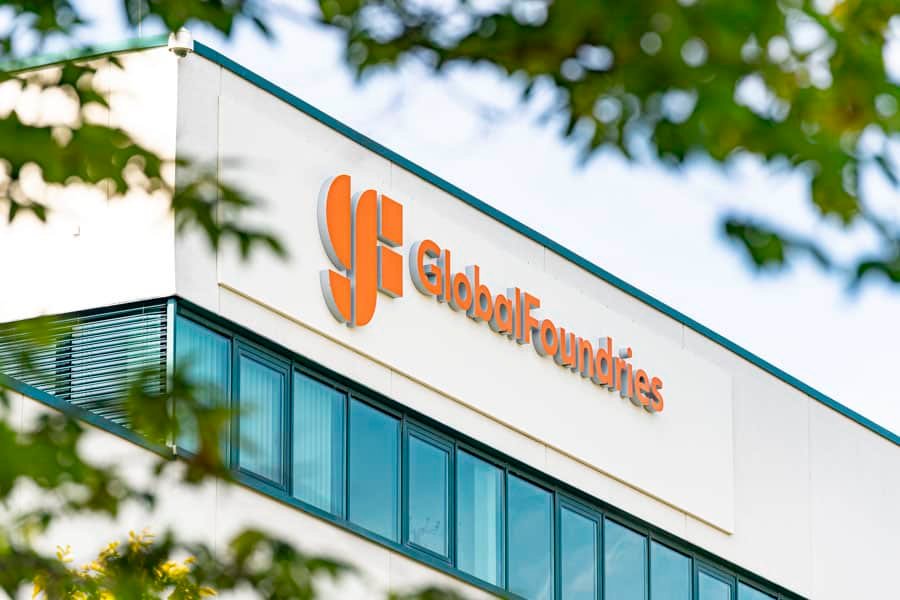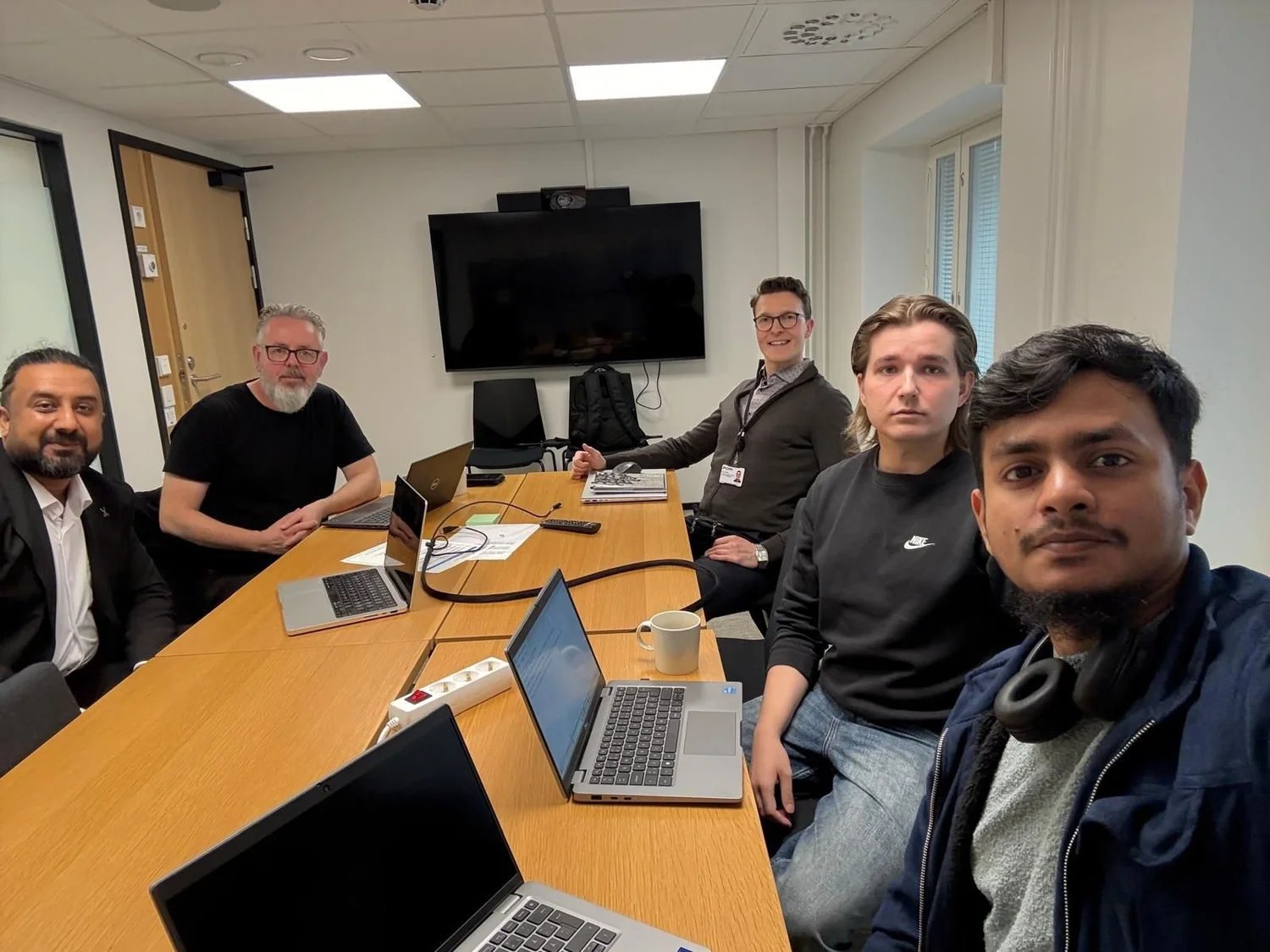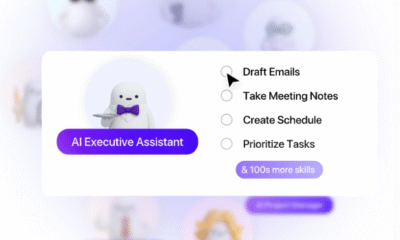Tools & Platforms
GlobalFoundries buys RISC-V chip firm MIPS to accelerate its AI ambitions

U.S. chipmaker GlobalFoundries Inc. is moving into the RISC-V processor business after announcing plans to buy the chip developer MIPS Technology LLC for an undisclosed price.
GlobalFoundries said it plans to let MIPS continue to operate as a standalone business, but the acquisition will also allow it to design and build its own processors based on the RISC-V instruction set architecture, which rivals x86 and Arm-based chips. Instruction sets are a collection of technologies that can be used to build central processing units. They describe the computing operations that the millions of transistors on a chip should carry out.
MIPS is an old name in the semiconductor industry, having been founded back in 1985, when it launched with chips for personal computers and servers based on the legacy MIPS architecture. Since then, MIPS has been bought and sold multiple times, and in the last decade it abandoned the old MIPS architecture and pivoted to RISC-V.
The acquisition brings a bunch of interesting technologies into GlobalFoundries’ portfolio, including intellectual property for general-purpose central processing units, artificial intelligence inference accelerators and various RISC-V-based sensors.
MIPS’ most recent processors are its Atlas CPUs, which are based on the latest RISC-V ISA instruction set, and include a range of different cores that are aimed at both general-purpose and real-time processing workloads. It also sells specialized versions for edge AI applications, offering high performance compute with low-power consumption.
GlobalFoundries said the acquisition will bolster its ability to sell integrated semiconductor solutions to a wider variety of end markets, particularly the AI industry. It also hints at the company’s plans to evolve from being a mere contract chip manufacturer to one that offers more integrated semiconductor solutions. Analysts say GlobalFoundries may well look into leveraging MIPS’ technologies to design its own RISC-V processors, in a move that may well put it in direct competition with several of its customers, who use its chip fabs to manufacture the processors they design.
Tom’s Hardware speculates that the acquisition also brings benefits to MIPS, as it means it will gain access to differentiated process nodes and a global network of semiconductor fabrication plants. That could mean MIPS can get its chips to market more quickly than before, and may help it to compete for orders from customers such as the U.S. Department of Defense. It requires its chips to be built at secure production facilities, where they can’t be interfered with. That said, the integration of the two companies will be a slow process, potentially taking several years to complete.
GlobalFoundries President and Chief Operating Officer Niels Anderskouv said MIPS will allow it to offer more flexible solutions to customers, so they can build superior products. “This acquisition will be a powerful step forward to push the boundaries of efficiency and performance across a broad range of applications in automotive, industrial and datacenter infrastructure,” he said.
Investors were clearly impressed with the company’s new vision, as GlobalFoundries stock rose almost 7% after the acquisition was announced.
Because MIPS will operate as a standalone business within GlobalFoundries, it will continue to maintain its existing relationships with other customers and foundries, said MIPS Chief Executive Sameer Wasson. He hailed the deal as a “bold new chapter” for the company.
“GlobalFoundries’ proven track record in delivering differentiated technologies through a secure, global manufacturing footprint will enhance our ability to accelerate innovation and scale our solutions, unlocking new opportunities in the physical AI space and driving even greater value for our customers,” he added.
The acquisition is slated to close in the second half of the year, subject to customary regulatory reviews and closing conditions.
Photo: GlobalFoundries
Support our open free content by sharing and engaging with our content and community.
Join theCUBE Alumni Trust Network
Where Technology Leaders Connect, Share Intelligence & Create Opportunities
11.4k+
CUBE Alumni Network
C-level and Technical
Domain Experts
Connect with 11,413+ industry leaders from our network of tech and business leaders forming a unique trusted network effect.
SiliconANGLE Media is a recognized leader in digital media innovation serving innovative audiences and brands, bringing together cutting-edge technology, influential content, strategic insights and real-time audience engagement. As the parent company of SiliconANGLE, theCUBE Network, theCUBE Research, CUBE365, theCUBE AI and theCUBE SuperStudios — such as those established in Silicon Valley and the New York Stock Exchange (NYSE) — SiliconANGLE Media operates at the intersection of media, technology, and AI. .
Founded by tech visionaries John Furrier and Dave Vellante, SiliconANGLE Media has built a powerful ecosystem of industry-leading digital media brands, with a reach of 15+ million elite tech professionals. The company’s new, proprietary theCUBE AI Video cloud is breaking ground in audience interaction, leveraging theCUBEai.com neural network to help technology companies make data-driven decisions and stay at the forefront of industry conversations.
Tools & Platforms
Tampere University GPT-Lab launches AI project with City of Pori

GPT-Lab, part of Tampere University’s Faculty of Information Technology and Communication Sciences in Finland, has begun collaborating with the City of Pori Unemployment Services on the Generative Artificial Intelligence in Business Support (GENT) project.
The initiative will test how AI-driven automation can improve efficiency and reliability in public sector services.
According to a LinkedIn post from GPT-Lab, the kickoff meeting on 3 September brought together project researchers and city representatives to align objectives and set the project roadmap. The work will focus on automating routine inquiries and case handling to reduce the workload of staff, speed up responses to citizens, and free time for tasks that require human expertise.
The project is designed to improve the efficiency, accessibility, and reliability of unemployment services. It will also provide a framework for the responsible use of AI in the public sector.
The GENT project, funded by the Satakuntaliitto Regional Council of Satakunta and led by Tampere University, runs until September 2026. Its broader aim is to bring generative AI expertise to companies and organizations in the Satakunta region. Researchers will work directly with businesses to co-create AI-assisted experiments that enhance productivity, investment efficiency, and competitiveness.
Solutions and materials developed through these experiments will be shared with all companies in the region and can be adapted to individual needs. The project also highlights cooperation between SMEs, public services, and research institutions in Finland.
The ETIH Innovation Awards 2026
Tools & Platforms
Global policymakers, executives urge open collaboration to share opportunities of AI-Xinhua
SHENYANG, Sept. 11 (Xinhua) — The 2025 Global Industrial Internet Conference concluded on Monday in Shenyang, the capital of northeast China’s Liaoning Province, having seen Chinese and international guests issue a call for open cooperation to share in the new opportunities presented by artificial intelligence (AI).
The conference brought together government and business representatives from over 10 countries, including Brazil, the United States, the Republic of Korea, Saudi Arabia and China, spanning sectors such as mobile communication, AI and high-end manufacturing. Attendees held in-depth discussions on how to better advance intelligentization, network connectivity and digitalization in economic development.
Piero Scaruffi, founder of Silicon Valley Artificial Intelligence Research Institute, said that AI technology is not a zero-sum game, but rather a catalyst for mutual benefits and shared success. Today’s advancements in AI have benefited greatly from international cooperation.
Tang Lixin, vice president of Northeastern University in Liaoning and an expert on industrial intelligence, told Xinhua that AI has become a strategic technology leading a new technological revolution and industrial transformation. It is a critical strategic resource driving global technology leaps, industrial optimization and upgrading, and overall productivity advancement, exerting profound impacts on economic and social development. Promoting the healthy, orderly development of AI has become particularly urgent, he noted.
“AI presents a shared opportunity for all humanity, as well as a common challenge we all face,” said Hermano Tercius, secretary of telecommunications at the Ministry of Communications of Brazil, adding that in the current complex and ever-changing international environment, strengthening international cooperation in the field of new technologies is crucial.
He said that as the world’s third-largest user of AI, Brazil still lags behind in data center construction. This necessitates collaboration with countries that have advantages in digital infrastructure to achieve complementary benefits and mutual success.
The further advancement of global AI technology hinges on the existence of an open, inclusive environment for innovative collaboration. During the conference, many participants highlighted challenges in areas such as governance frameworks and technical standards that current global AI development faces.
“AI has triggered significant transformations in the technological landscape. Without better compliance-driven rulemaking, it is difficult to predict its future trajectory. Global cooperation is essential to address these challenges,” said Alexandre V. Chidiac, managing partner of Iskandar Group, which is a company engaged in international shipping and trade.
“We advocate for inclusive policies and environments in the field of AI among all nations,” Tercius said. “Only through such efforts can we ensure that no country is left behind in this technological revolution, and build a robust bridge towards shared prosperity and an interconnected future for the world.”
Ben Sassi, general manager of the Warsaw Chamber of Commerce in Poland, stated that there is an urgent global need to strengthen dialogue, enhance mutual trust, and build widespread consensus in areas such as rule-making, technical standards and ethics to promote the healthy development of AI in a united manner.
Over the years, China has made positive explorations and contributed constructive ideas and solutions to the global governance of AI. The country launched the Global AI Governance Initiative in 2023. And last year, the 78th UN General Assembly reached a historic consensus by adopting a resolution on enhancing international cooperation for AI capacity building, which was spearheaded by China.
Participating guests also expressed their willingness to collaborate with China in the field of AI in the future. Pakistan Global Business Alliance Chairman Muhammad Asif Noor Farooqi, for example, said that he hopes China and Pakistan will enhance cooperation within the digital economy to strengthen Pakistan’s intelligent infrastructure. ■
Tools & Platforms
The Latest Tech News – SimCorp, Axyon AI

The latest technology news in the wealth management sector from around the world.
SimCorp, Axyon AI
SimCorp, the global
financial technology provider and subsidiary of Deutsche Börse
Group, is partnering with Axyon AI, a fintech firm specialising
in predictive, AI-driven solutions for asset managers, hedge
funds and institutional investors.
Axyon AI’s predictive analytics will integrate into the SimCorp
One investment management platform later this year.
Equity managers and analysts will gain access to predictive
alerts, helping them anticipate market shifts, identify emerging
opportunities, and assess potential risks, SimCorp said in a
statement.
“By integrating Axyon AI’s solutions into the SimCorp One
platform, portfolio managers benefit from seamless access to
asset forecasts, rankings and signals directly within their
existing workflows,” Marc Schröter, chief product and technology
officer at SimCorp, said.
As part of the deal, Axyon AI wil join SimCorp’s open
platform ecosystem, which will give SimCorp One users access
to third-party tools across the investment management value
chain.
SimCorp referred to industry research showing that there is
rising demand for AI in asset management. The 2025 Global
InvestOps Report found that 75 per cent of buy-side executives
recognise AI’s potential benefits but require more guidance on
how to embed it effectively.
-

 Business2 weeks ago
Business2 weeks agoThe Guardian view on Trump and the Fed: independence is no substitute for accountability | Editorial
-
Tools & Platforms1 month ago
Building Trust in Military AI Starts with Opening the Black Box – War on the Rocks
-

 Ethics & Policy2 months ago
Ethics & Policy2 months agoSDAIA Supports Saudi Arabia’s Leadership in Shaping Global AI Ethics, Policy, and Research – وكالة الأنباء السعودية
-

 Events & Conferences4 months ago
Events & Conferences4 months agoJourney to 1000 models: Scaling Instagram’s recommendation system
-

 Jobs & Careers2 months ago
Jobs & Careers2 months agoMumbai-based Perplexity Alternative Has 60k+ Users Without Funding
-

 Podcasts & Talks2 months ago
Podcasts & Talks2 months agoHappy 4th of July! 🎆 Made with Veo 3 in Gemini
-

 Education2 months ago
Education2 months agoVEX Robotics launches AI-powered classroom robotics system
-

 Education2 months ago
Education2 months agoMacron says UK and France have duty to tackle illegal migration ‘with humanity, solidarity and firmness’ – UK politics live | Politics
-

 Funding & Business2 months ago
Funding & Business2 months agoKayak and Expedia race to build AI travel agents that turn social posts into itineraries
-

 Podcasts & Talks2 months ago
Podcasts & Talks2 months agoOpenAI 🤝 @teamganassi





















